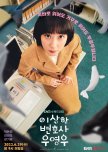
Extraordinary Attorney Woo Episode 6
1 people found this review helpful
1. Young Woo throwing back the argument of the Judge back at him.Yeah, why not? It's logical. What's wrong with it? But in the neurotypical world, there are 'social rules' to follow and what Young Woo did is not acceptable, it is considered rude and especially disrespectful for a judge who is higher in rank.But again, autistics think more on the logical side and doesn't understand 'social rules' the way neurotypicals do. For neurotypicals, they understand these 'social rules' naturally, for autistics, we don't. You have to tell us, then you have to explain it logically, then we will add it in our already long list of "Do's and Dont's" that is draining us.2. Letting Attorney Choi speak first.Scene: court trialThis one is not easy to generalize so I'll just react if I'm on their shoes.Even though Young Woo and I are different, I would not be able to take advantage of that opportunity wherein the jury is feeling sympathetic over the witness. My approach and thinking will still be logical which always appear harsh for neurotypicals. It's all about "x + y", especially in an argument (like debates and courtrooms).3. "Why the long face?" And Young Woo checked her face.3.a: "Literalism".This is one thing I've been waiting for them to touch on, "literalism". They could've done this in a lot of ways but they chose something funny. That is good, I applaud them for their choice on how to portray this.In other shows I've seen, literalism was portrayed on a more serious scenario, either by telling an autistic to "wait here" when in fact the neurotypical girl left him and he did not realize he was dumped. Or, the autistic was confused because s/he can not tell if they should take it literally or not.EAW chose a more lighthearted way to portray literalism. I like that. However, I hope they touch on it again in a more serious occassion because this is one of the most misunderstood aspect of an autistic and if one is not careful--especially if they already know the person is autistic--it might not turn out well.For example, if one tells an autistic to "wait here", there are autistics who will wait for as long as they can. They may ask someone to buy food so they can stay there and wait because they were told to "wait here". THEN! When the person who told them to "wait here" sees them, they'll blame the autistic person for being stupid for taking it literally.3.b: It is not easy for us to understand idiomatic expressions.Like in this example, "long face", Young Woo did not understand the idiom.From my own experience, in the Philippine elementary education system (at least back in the 80s), it is part of our curicculum to teach kids about idioms. So I understand many of the basic and common idiomatic expressions, like "fall in line" (which is used a lot in schools).There are also idioms that makes sense so even if it is new to me, I can deduce some meaning to it and react accordingly. But there are idiomatic expressions I have to ask about or research to understand what it means, some examples are:- break a leg -- for the longest time, I never understood this. If used in a context, I understood it as "go change things" or "go prove to them you are right". But what it actually means, and I found this out only today, is "good luck".- easy does it -- what it means to me is "easy, right?" Just today, I found out it means "slow down".- give the benefit of the doubt -- what it means to me is literally that, give a person a benefit of the doubt. Meaning, give them an opportunity maybe they are right or they are telling the truth. Give them a chance. But I learned today, it means to "trust what someone says". That's way over my head. "Trust" is such a huge word. The idiom "give the benefit of the doubt" does not fit "trust" in any way as far as I'm concerned. I'm just giving you a chance.- "a perfect storm" -- is as literal as it gets. I have no idea this is used as an idiom until today which means "the worst scenario".Because I also love to read fiction novels, I had the chance to get exposed to these idiomatic expressions and many other nuances of the English language. Whenever I encountered something I don't understand, I keep re-reading the sentence or the paragraph for the context, deduce some meaning, then I go check a dictionary or thesaurus to confirm if I understood it correctly; today, I just go online and search for it to confirm.Here is another example: In the UK, their greeting is "how do you do" and you reply with "how do you do". For an autistic, the reaction (verbally or in thought) is "how do I do what?" This was portrayed in the film "A Brilliant Young Mind" (a.k.a. "X + Y").Such expressions are confusing. My reaction is the same and it took me a long time to get used to it. Still, there are other expressions that I have to pause because I have to figure out what it means.My personal pet peeve is this: apologizing when someone mentions a relative or friend of theirs passed away. I will never understand this 'social rule'. It simply does not make sense especially if the person who passed away was years ago. But it is a 'social rule' so it is in my checklist.This is why it is draining for us, we have to keep a list in our mind of 'social rules' and react accordingly when encountered, otherwise people will whisper "rude", "what's wrong with him/her", etc. For me, the more appropriate reaction is either silence or tapping them on their back or ask them "are you okay" but apparently those are rude.It's similar with "condolence" and "sorry for your loss". I just say "thank you" if they're telling it to me. I just say "condolence" if someone I know is greiving. Does it mean I am not sincere? Not at all. It just does not make any sense but since it is a 'social rule' …However, since I've been watching K-dramas and recently there were a lot of mourning scenes, I think I found what that I can appreciate and agree with: the Korean way of mourning. I have not fully looked into it but the Korean way makes far more sense than "condolence" or "sorry for your loss". You visit them, pay your respects, if you are relative or very close you do 2.5 bows. If a colleague, you do a head bow. Then you eat the food they offer not because it is part of the "ritual" but because it is part of paying your respects. It is like the last meal you'll share together.That makes far more sense to me.4. Young Woo: "I don't like department stores"Reasons: Too crowded -- it is draining for us. Too much noise -- same thing, draining. Confusing -- this one is hard to explain but I've seen other autistics use this as an explanation why they avoid malls and department stores. For me, since reading maps is my first fascination, I learned to orient myself and creating personal landmarks. I also learned to visualize an area from a top view, it may not be exact but I can see the layout. I am __not__ saying I don't get lost, there was one time that I did and to this day I still can't figure out what happened that night. (And I was with friends not familiar with the area.) Too many things to 'fix' -- me, I just learned to distract myself, and I tell myself I don't get paid to make things perfect. Unfamiliar - she did not grow up visiting such places so she has not found a routine and ways to cope with everything that is happening in such places. If a place is unfamiliar, we can get overwhelmed. This is one reason why many, not all, autistics are afraid to travel alone. We can but first need to prepare for it. To find order to things. To have a checklist in our mind. We go through with it again and again. In my case, I check online maps, familiarize myself with the town or city's layout, where the police stations are, the malls, foods, and so on. When I visit an unfamiliar establishment like malls or hotels, I pay attention to fire exits, where the doors are, staircases, except the restrooms (you can just ask for that one without anyone calling you weird (I once asked where the fire exits are and I got looks and laughter from people around me, so I stopped asking about it)). "No touching" policy, she more sensitive to it than usual because she's already trying to calm herself and it's only adding more pressure5. Young Woo's suspected mother may be in the spectrum too.Scene: she fixed the shoe displayIt looks like they are going to touch on the most common understanding that autism is genetics and can be passed on.Besides that, this is also interesting. If her [suspected] mother is in the spectrum too, so far it appears that her mother is masking her autism so well like autistic women in real life.6. RomanceIt is good that they are not pushing it. I think the message here is that it should be taken slowly to let an autistic find his/her way to it and make them comfortable. If it is rushed, the tendency is to take flight.Autistic women are the best ones to explain this.
Was this review helpful to you?

Sisyphus: The Myth Episode 9
1 people found this review helpful
What made this episode very special was the depiction of an attack in South Korea from North Korea in the present day with the current technologies.All I can say is, let's not take it for granted, let's all aim to avoid war.#NoToWar
Was this review helpful to you?
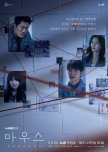
Great execution. Great scenes and acting. Epic script. It felt like it actually happened and I was watching a live broadcast.
Was this review helpful to you?

She Would Never Know Episode 1
1 people found this review helpful
A great start. They established the basics of the show: introduced the characters, the relationships (or lack thereof), who they are, and the tension. It's not slow nor fast, it just right. Again, a great start.
Was this review helpful to you?

Please Don't Date Him Episode 9
1 people found this review helpful
Episode 9 was a episode jam-packed with life lessons even though the romantic scenes between Seo Ji Sung (played by Song Ha Yoon) and Jung Kook Hee (played by Lee Jun Young) were lovely and shot perfectly.This episode revealed how cruel the Internet and mass media can be when the wrong information is fed to the people, and how keyboard warriors and trolls can destroy people offline through social media and and social networks. This is a very common issue today and there does not seem to be a way to stop it. However, the episode also demonstrated how the Internet can be used to silence "fake news", not by stooping down to their level but by using it to spread the good deeds of people. In these cases, we can not fight fire with fire. We should do what firefighters do, we should fight fire with water and do good deeds no matter what.I also applaud and bow to the writer, director, and the whole cast, in showing us the heroism and dedication in saving lives, of all firefighters around the world. Majority of the more than 7 billion people in the world rarely see firefighters in action that we tend to simply dismiss them as "just another public servant", through this episode we were reminded that they stay loyal to their desire to save lives even if their own is at stake, even if they might leave their spouse and children behind.While the romantic scenes were lovely, I hope that we all learn from this episode that [1] we should speak out and spread the good of other people; [2] in most cases we must fight fire with water; and the highlight of episode 9, [3] let us always remember and respect all firefighters, no matter their past.
Was this review helpful to you?
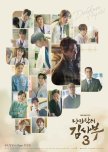
Dr. Romantic Season 3 Episode 12
1 people found this review helpful
I'm torn with Papa Cha leaving. He added a unique dynamic in the team, and the show itself.However, in a way, his story has ended when he found closure with the pain he endured. Him choosing to resign, despite what Master Kim told him, was Papa Cha realising that he was being consumed by the events of 3 years ago. He can not move on from it, which was affecting him as a person, as a father, and as a doctor.What did he realise?It was his fault his student committed suicide.Why was it his fault?Simple. He did not bother to understand the new generation. As someone who is older, as a professor, he should've had taken the time to reach out and understand, to ensure his message was conveyed and not misunderstood.But he failed.You see, this is a very common mistake a lot of people do every day. Once we are up there, once we have enough experience, we forget where we came from. We forget how we started. We forget that things change and not everyone is like you and me. As a Xennial, I made that mistake too, a lot. Often, it is too late to realise that mistake and we've hurt people along the way.This is what Papa Cha realised, hence, he chose to resign. He finally started to see how the new generation think.Did he surrender? Not at all. He chose to start anew. Fresh. It is his way to make amends and to honour that student who committed suicide, and his favourite student at that. It is also better for the hospital to have a new head, otherwise, they will continu to whisper. Which, as Dr. Cha told Papa Cha, she does not like people whispering about him.Dr. Cha is right, at the end of the day, no matter what our opinions of our family, be it good or bad, they still are our immediate family. Hearing people whisper about the mistakes of your family is not something any human being should experience.So, a salute to Papa Cha. He may be thinking that it was his downfall, and there is no grace in it. However, the way I see it, he exited with grace and honour; and it was not his downfall. Rather, it was actually the first step in him rising up again because the incident 3 years ago already left him “down” for so very long.
Was this review helpful to you?

Extraordinary Attorney Woo Episode 2
1 people found this review helpful
Summary: Like in episode 1, this was a well done episode. No exaggeration. No sensationalized portrayal. No stereotyping.Detailed feedback:1. Taste sensitivity. - Scene: ham was changed in her gimbapAs I mentioned in my episode 1 feedback, autistics have sensory sensitivities and it is both positive and negative. Or to put it another way, it can be blessing or a curse. In this case, it is neither. Attorney Woo simply recognized the ham used was different and she did not like the new ham.Now, for Attorney Woo this seems to be okay. However, as I also mentioned in my episode 1 feedback, there are varying degrees to each trait per autistic--it does not mean that we have the same degrees of each trait just because we share it.For some autistics, changing the ingredient may become a "big issue" that neurotypicals usually misunderstand as "rude", "disrespectful", and "finicky"/"nitpicky"/"choosy". If an older autistic reacts this way, most neurotypicals would say the person is acting like a kid.For some autistics, it also has to do with not being able to handle "changes". While this is more applicable in routines, it can also apply to cases like taste (if the taste and texture are similar; it's possible an autistic may not detect it; but there is no guarantee in that).So, while our dear autistic attorney was fine with the surprise change in the ham ingredient used and her reaction was simply to remove it and express her dissatisfaction by arranging it in an "x", not all autistics will react similarly. Some may react in a way that neurotypicals will find negatively while some autistics won't even react at all.From experience, I used to be picky and I won't eat it. But as I grew up, I learned to concentrate on the food and I always think that there are other people who have nothing to eat, this helps me to just eat the food. I'm still picky but this time it is because of health and religious beliefs. But if the taste and texture is really, really, bad …2. Texture / touch sensitivity. - Scene: trying out a wedding dress.Our dear attorney commented that it was like she's wearing a clothes filled with tags/labels. It's irritating her.This is texture/touch sensitivity and is a common trait amongst autistics. Again, depending on the degree of the sensitivity, for some autistics they can only wear a particular type of clothing. For some, any would do. While for others, all the tags/labels has to be removed, and to others as long as they can not feel the tags/labels it'll be fine.But, yes, this one is correct.3. Curiosity and very observant. - Scene: meeting the client's daughter at her room.Again, this is true and is a common trait. This is also one reason why autistics hear/see things most neurotypicals can't or don't. Our eyes and attention are always roaming around, taking in our surrounding, automatically processing everything.In the attorney's case, she's processing the daughter's room in relation to her case. Under normal circumstances, she would more likely comment about so many things. But since she's there for her case, she limited it to within the parameters of her case, like why there are no pictures of her husband.And when the daughter explained, our attorney pointed out that there is actually a photo of her husband … tucked away in a corner. This was her in attorney mode, analyzing things, trying to narrow down the scenarios already in her head (since she already noticed these things, she still has to ask to narrow it down).4. Slow to get a joke.I would say this is a common trait too because the way we think and process things is logic comes first, so once we realize it was a joke, we have a late realization and reaction.I'm no stranger to this. Eventually, I learned a way around it: instead of reacting with logic/facts, I quickly process it in my head first and try to detect if it was a joke or not. It is not fool-proof, sometimes what I thought was a joke was actually not and I end up offending the person.Bottomline, it is not easy for us. We do understand simple jokes but the deeper or complex it gets the less we'll understand it and the more we'll get confused.5. Attorney Choi Su Yeon told litigation Attorney Lee Joon Ho that he should set boundaries on when Attorney Woo can talk about whales.Okay, so this is something neurotypicals are finding very hard to understand. Most neurotypicals are so concerned they might offend a neuroatypical/neurodivergent person if they tell them to stop or to set boundaries. Or, the autistic might suddenly go "wild" (neurotypical description not mine).No, we will not get offended. At least majority of us autistics won't. It is actually helpful if you do tell us to stop and if you set boundaries. However, you just need to explain it logically, because this is the way we understand and process information.In the show, Attorney Woo already understands why she talking about whales should be limited because her father always reminded her of that. Thus, Attorney Lee Joon Ho doesn't need to explain why he's setting boundaries, Woo simply understood it already.To give another context, in my case, whenever I start talking about something and you stop me because you noticed I'm just repeating myself or going endlessly about it, I take it as a sign that I've been talking forever, like Woo, I just understand it already.However, again, for some autistics this is not the case and you do have to explain why. Some will probably ignore you and still continue talking, and you really have to be patient. If it won't work, don't force it, try it another time.Some would probably say this is usually the case for "classic autism" and for those who are "high functioning" (like aspergers syndrome) "you won't have problems". Not true. It is not possible to divide autism into Category A, Category B, Category C. We do have common and uncommon traits but the degrees of these traits are different per person.Someone who is in the "classic autism" classification may understand "stop" and "boundaries" but in that same classification another will just continue talking and ignore you. The same goes in the "high functioning autism" classification, and I for one knows a lot who will just keep on talking and they're "high functioning".Bottomline, Attorney Choi Su Yeon is correct. Do set boundaries, we do appreciate setting boundaries, like come on, we set boundaries on getting touched, right? That means we understand what boundaries are for. we just need to understand why, it should make sense, it should be logical.In Woo's case, it makes sense not to talk about whales randomly and she understood that especially because her father patiently worked with her. (So clue here: support is very important; and I can not stress this enough, support at home. Today, we think of support as attending a 'special needs' school, while there is nothing wrong with that, these 'special needs' does not necessarily fit each individual. If we are different from you, we are also different from each other within the autistic community.)6. Attorney Woo laughing and was very happy when he saw Attorney Joon Ho "lovestruck". - Scene: trying a wedding dress.I can't speak for that. I'll leave that to autistic women.From my perspective, yeah, we do laugh and enjoy simple things like seeing other people dumbstruck or lovestruck because of us. I mean, we are no different from neurotypicals, we are human beings too. We just think, process, and express things differently. But deep inside, the very basic of everything? We're human beings like you. There are reactions that will always be no different from anyone else.7. Everytime she was asked to do something during a meeting, she leaves immediately.I did not explain this in episode 1 but here is why: we take things literally.This one is also not easy to explain because if I simply say "we take things literally" then one would assume we take everything literally--but that is not the case.We do think and try to analyze things however, there are some areas where we automatically take things literally because it does make sense to … well … take it literally. Like in this show, she was told to write a report/statement, so off she go to do just that.In some cases, especially in the real world, the 'boss' of the meeting would probably stop the person from leaving and ask "where are you going?" And the person would reply, "you told me to do this and that". The 'boss' would probably reply with, "are you mocking me?" or "are you serious?" or something along those lines. The autistic person would be dumbfounded because at this point, the person wouldn't know how to process things. #1 the person is now already aware s/he did something wrong; and #2 if they say more, they might make things worse.For most neurotypicals, they understand this as "do it after the meeting". But not so for autistics, especially for those working for the first time.If you see a team member or a subordinate acting this way, be patient. More likely than not, they are autistic and they either chose not to disclose it; or they do not know. If they are not autistic in anyway, then they are probably intentionally doing it … and that's a different discussion.Can we tell which things autistics will take literal? Nope. Like how each trait have varying degrees of effect; we also have different things that we take literally. For some autistics, if you tell them to "wait here", they will literally wait wherever here is, and they'll probably still be there the next morning.For some autistics, if you tell them to "wait here", they'll wait for an hour or two but then realize something is wrong or they were dupe. For some, they'll understand it immediately as "let's break up"/"end it here" or "don't follow me".If it comes to lovers quarrel, well, that makes it even more complex and confusing. I think even neurotypicals / non-autistics will be confused in a lovers quarrel scenario. If you've ever experienced this, when your girlfriend tells you to "wait here" or "stop following me" when what she actually wants is for you to follow her--but she gets angry if you follow her--so you don't know what you'll do. YEAH, that exactly is how we autistics feel and think.We end up with doing what is more logical, considering all other factors. For example, if someone tells Attorney Woo that she should not leave a meeting when she's told to do this and that … even though she will take "do this" literally, she will consider what she was told before and will stay.Like in a lovers quarrel, if the girlfriend/wife got angry when the boyfriend/husband followed her, the next time he won't follow. (But the girl will be angry again because he did not follow.) Good thing, real life isn't a lovers quarrel so it's a little bit easier to choose.---I guess that's it for episode 2.I can't wait for episode 3 because they are going to tackle an autistic trying to help an autistic with a different degree of "autisticness" (if that is even a word). I'm seeing that episode 3 will demonstrate what I meant by having common and uncommon traits but each trait have varying degrees of 'effect' on an autistic.
Was this review helpful to you?
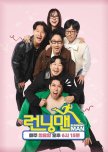
Running Man Episode 679
0 people found this review helpful
I delayed watching ep679 because it's a farewell episode for Jeon So Min, but it is unavoidable as farewells are a part of our lives.To Miss So Min, thank you for all the laughter you've given us through Running Man. We will definitely miss your unique comedy in the show. As you have said, it was a dream come through for you and congratulations, you did amazing for 7 years!Keep looking forward as life still has a lot in store for you. Whatever was the reason you have to bid farewell, remember always to be happy. Family, health, and happiness is a right of every human being.So, keep running girl! And always wear your genuine smile.Saranghae from the Philippines!
Was this review helpful to you?
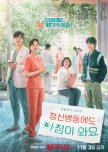
Daily Dose of Sunshine Episode 1
0 people found this review helpful
Wow. This is actually very, very good! It shares enough information about mental illnesses, makes you have some basic and updated understanding, and doesn't focus on medicines, but more on how to deal and communicate with people. Yes, people, not “abnormals”.Because that's how we should treat everyone, as people, as human beings. And I applaud them for that, and this is just episode 01.
Was this review helpful to you?

Joseon Attorney: A Morality Episode 14
0 people found this review helpful
Episode 14 was 98% I imagined it to be. It was so powerful. If I was the writer and/or director, it's how I would have written it and directed it.Perfect!---1. The bury/grave scene, I would have chosen to let him lie down on top of her grave, let him cry out a little bit more and fall asleep. But lying parallel is enough because that's exactly what I want in that scene, for him to fall asleep.2. He cried his heart out. He deserves Best Actor for that scene.3. The winter vs spring scenes side-by-side, best director/writer/editing (whoever thought of it). That was so powerful.4. The combination of #2 and #3 was pierced my heart.5. Attorney Kang giving in to sorrow was exactly what I wanted.6. The Princess getting sick, same, what I want.7. The Princess marrying Yoo's son, exactly what I want to happen.8. Yoo resigning from his position, same thing.The entire episode was perfect. I love it. 100 out of 10 stars.
Was this review helpful to you?

Dr. Romantic Season 3 Episode 4
0 people found this review helpful
The sudden unavailability of the original new doctors from S1 created a Dr. Romantic tradition of taking in new doctors and training them in Master Kim's principles and ways.Come Season 3, they can not just remove Season 2's new doctors just to keep that tradition, so what they did is to move the original cast to the new Trauma Center.In this new Trauma Center, Seo Woo Jin is like the young Master Kim. True enough, from episodes 1 to 4, Woo Jin has showed how he truly learned, and duplicated, Master Kim when it comes to treating patients and training people.Meanwhile, Master Kim and the seniors of Doldam Hospital, with the support characters from Season 2, are the main crew now. Doldam is basically back to ho it was when S1 and S2 started… short on staff and Master Kim the all-around doctor.Oh, and Master Kim is going to train two new doctors… again. Doldam's tradition.All the while, Master Kim's grand plan is to make them all grow, as well as to convince his rival that the Trauma Center is the best place he could ever be.You see, Master Kim is fully aware that everyone in the hospital started worshipping him, but he is only human and that means one day, he wouldn't be there to solve all their problems. They haven't realised it yet, but they all already learned what they Master Kim can teach them.As episode 4 said, the pupil has surpassed the Master, which is a universal truth in any culture, at any given time in history (or today).It is Master Kim letting them all go, work with someone new, his rival no less, so they can grow. This in turn will teach them that Master Kim is not a god, and that they need to stand on their own without him.Which is what was repeated in episodes 1 to 4, they always have Master Kim to back them, or as a last resort.And I think this is where Season 3 is going, and I can't wait for all the challenges they will face and how they are going to face it individually and as one unit. Are they going to forget everything they learned from Master Kim that the patients come first? Are they going to forget the morals they learned from Master Kim? Or, are they going to go beyond their differences and see above and beyond their biases, to create cohesive team, the best in Korea?Even Master Kim's rival has a lot to learn. He is too by-the-book. Like his daughter said, there has to be some flexibility if it means it will save a patient.Which is true. We wouldn't be where we are now today if great minds before us were 100% by-the-book. Absolutely nothing comes out of being 100% by-the-book. No innovation. No improvements. No humanity in it. We just have to learn to judge, draw a line, and balance it all out.Look at the military, that is a fine example of 100% by-the-book. Who brought them innovation? People, brains, who are not controlled by the military. We should not make ourselves slaves to principles and rules. We need to be flexible because we are human beings and everything, like it or not, is case-by-case.This is, at least as far episodes 1 to 4 are concerned, is what Season 3 is about. Growth. Learning. Flexibility.
Was this review helpful to you?

Dr. Romantic Season 3 Episode 1
0 people found this review helpful
SPOILER ALERTSPOILER ALERTSPOILER ALERTInitial feedback as of s03e011. It was a good idea, they sort-of “rebooted” the series in Season 02. The new couple is better suited for the series, and now they're back in Season 03.2. It's great to see they're continuing from Season 02, instead of starting a new story. Although 3 years have passed (same as in real-life = premiere year of the shows.)3. I like how they retained most of the characters/actors. Again, continuity.4. Back in Season 02, I was hoping they'll pick Lee Kyung Young in Season 03. YEAH THEY DID!5. Suspicion is correct! Lee Kyung Young's character is Cha Eun Jae's father. Hahaha. This was a very good decision, we need this kind of complex relationship, and it will add a lot of amazing conflicts.And we all know, when Lee Kyung Young is in a show, 99% he's the antagonist, and it's going to be brutal. LOL!!!!So, imagine her daughter is Dr. Cha Eun Jae, and he is also a rival of Master Kim. SUWEEEEETTT6. Great to see the latest in ER and medical tech. About time, especially in Korea, a country which excels in medical technologies.7. Great premiere episode 01, they did not jam every character immediately. It was a slow re-introduction. Also, I like how they immediately revealed the antagonist. That means, we're going to enjoy a hospital war very early.Since it's this early, I can't imagine what twists and turns they are going to introduce. After all, it shouldn't be a rehash of any conflicts they used in Season 1 and 2, otherwise it would be boring.Great premiere, I love it. I can't wait for tonight's episode 02!
Was this review helpful to you?
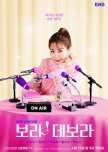
Yoo In Na deserves the Best Actress award for this show, especially for episode 05. She perfectly captured and portrayed a person who loves their ex deeply, gave everything, and only to be dumped later for someone else.It was as if Yoo In Na experienced it herself. She cried naturally, was she still acting? She showed her character's desperation, she shook, her body movements and facial expressions were exactly what it is in real life.And that's just the character she's playing. We haven't even started talking how great the show is in pacing and focusing on what a person goes through when heartbroken. From break-ups, refusing to accept their new reality, to moving-on, and to picking the pieces of their broken heart. And we're only at episode 5 and 6.100 out of 10 stars.
Was this review helpful to you?

Strangers Again Episode 5
0 people found this review helpful
I love it. They addressed the less spoken issue of Korea's marriage tradition wherein a spouse's family registration is transferred to the other spouse's family.For those who are not familiar, in Korea, it has been their tradition for centuries, for a spouse to transfer to their spouse's clan. Usually, to this day, it is the wife. Family registrations, as it is called today, or family trees, is a huge thing in Korea to this day. When you get married, typically the wife's family tree is moved to the husband's family tree. The wife stops being a member of her original family. And she is treated as a “daughter-in-law”, not as a full daughter, of her new “family tree”.There is a centuries old issue with this practice, the in-law spouse, if she's unlucky, is treated less, as a slave, or as a helper. They are expected to serve their new “family tree”, because if they don't, it is a valid cause for divorce the new “family tree” can force on the married couple.Unfortunately, this tradition of serving your new “family tree” lingers on, and many are afraid of speaking out against it, especially if the new “family tree” a spouse was adopted into are people in power or influential. As proven by the case in this episode.There is nothing wrong with keeping “family trees”, or being adopted into your spouse's family tree/registration. Personally, I like that. However, the adopted spouse should be treated as an equal. If a wife was transferred to your family tree/registration, then she should be treated as a full daughter. You should not let your daughter-in-law do things you wouldn't ask of your own flesh-and-blood daughter.The same way goes if the spouse who was adopted/transferred is the husband (which is not unheard of, and did happen centuries ago [at least, in this regard, Korea is more advanced socially]). Using this episode's case, if you wouldn't ask your children to be your driver and personal secretary, and treat them as slaves, then you shouldn't treat your adopted children's spouses like that.A good way to end this social issue without killing the tradition of family registry/trees is to give the married couple an option to start their own family registration/tree, and be 100% independent.Of course, in a culture where family registration/tree is integral, being independent, or starting your own registration/tree, would also mean you are disowning your original families. That will be the main argument of many. And if you do, if one day you need help, they wouldn't bother helping you.But, is there any difference to it when a spouse is removed from their original family registration/tree and transferred to another? No one complained when their daughters stopped being a member of their own family registration/tree and moved to their husband's. The original family's “rights” are very limited, almost none, but they don't turn a blind eye when they require help (unless it's political, or forced by law).If so, then there shouldn't be an issue if the married couple decides to start their own family registration/tree. People who will interpret it as “disowning their own family” are the problem, not the couple.Think of it this way, instead of only one spouse (wife or husband) transferring to another family registration/tree, it is both of them. Does that make them “no longer your child/family”? No. And if one day they need help, you help. It is, after all, your responsibility as parents, regardless which family registry/tree they are under.Our responsibilities as parents never stops. As this episode has shown, once our kids are married, the parents become passengers. Parents do not disappear because our responsibility to our children continues, it only changed in form, as a passenger. As a guide. As a support.The ones at the front, holding the wheel and making decisions, are the married couple.So, you see, the tradition can stay, but there is an option to become independent.Lastly, if the married couple chose not to be independent, the in-law who whose family registration/tree was transferred to their spouse, should have a protection against being treated as anything but a full child.Seriously. If your child married him/her, and you treat their spouse less than your own flesh-and-blood child, what does that make your child? In the first place, you approved their marriage. Haven't they realised by treating their children's spouses as a 'slave', they're practically saying that their own children are slaves, too? And you, as the parent, are a complete fool for having approved of their marriage?Even in political marriages, be it centuries ago or this very day, you don't pick just anyone because the spouse of your children will also reflect on your children, and yourselves as the parents.Let's be more liberal. Children getting married without the approval of their parents, which is the case in many countries today. It still will reflect on your children, and you as parents, whoever their spouse is. After all, you were the ones who shaped them to be who they are.If they chose someone “undesirable”, it simply means you failed as a parent. In the first place, why did your child pick as a person? More likely than not, when they were growing up, their choice of “friends” were also undesirables. What did you do as a parent? Make excuses like “I'm too busy with work, it is all for you so you will have a better life than me?”Watch this episode. It applies, not only to Koreans, but for all of us.
Was this review helpful to you?

Curtain Call Episode 15
0 people found this review helpful
1. It gave us a glimpse into the character of the real grandson.Who is he? He is just a little kid upset with his grandmother. But deep inside, he is hurting. That hurt deepened after he saw the life his grandmother have, while his father died, and his wife is battling for her life.Forget about the life he had to endure, it is nothing compared to how he saw his father lived and died, and how his wife is fighting for her life. Then seeing the luxurious life his grandmother has.He is just a little kid inside, who have been hiding his soft spot, his weaknesses, and acting strong, to survive the world. It is the only thing he knows. He always has his guard up. And his misunderstanding of his grandmother added on top of it, he is simply acting strong while trying to take revenge… but deep inside, he is hurting.That's him. And fake grandson understood it so well. That brings us to #2.2. The fake grandson is more than just an actor.He is a soft person who understand other people first before he judges them. He sees the positive in every human being. He knows each person have a story to tell which shaped them who they are today.Using his own experience, he knew he can connect with the real grandson. To connect with him heart-to-heart. The real grandson can keep his guard up, but he knew how to open the backdoor and get through him.In contrast to that, the fake wife confronted the real grandson, but she made a wrong judgement call. She approached the real grandson head on, tried to make him feel guilty and herself the victim. Which only backfired because she did not bother to know what is his story.The real grandson warned her to watch her words, yet she did not listen, instead she attacked stronger. He was holding himself back because he is not the type of person who wants to have a pis*ing contest.But because she wouldn't listen, he revealed his story to her. The worst part of his story, seeing his father die, and his wife struggling to survive, which forced him to do things she tried to make him feel guilty of.Fake grandson understood because he was abandoned by his mother. Fake wife did not, because she grew up in a well-off family and sheltered environment.This contrast allowed the fake grandson's character to bloom. He was not doing it because it still is part of their act, he was reaching out to the real grandson because he understands where he is coming from.Like the real grandson said so himself, everyone is telling him what they want him to do, or not do. No one bothered to ask him what he really wants.And that is… for people to see him for who he is, a human being who was forced to do things he doesn't want, simply to survive.It is why he kept saying they are strangers. Because strangers rarely see other people for who they really are. A real family will see a person. A real family will know if you are hurting. If you need a shoulder to cry on. They will ask if you need help.The fake grandson turned out to be the real grandson's family. He saw him. He saw beyond the facade the real grandson was putting up (his guard), and became the person he needed.Just look, it's episode 15, and still no one have any idea his wife is close to dying! No one cared to ask him! He's a human being crying out for help, but everyone's a stranger, they are only family in name.The fake grandson and the real grandson. Episode 15 was that. A real familial bond between two unrelated people.
Was this review helpful to you?























